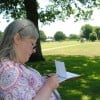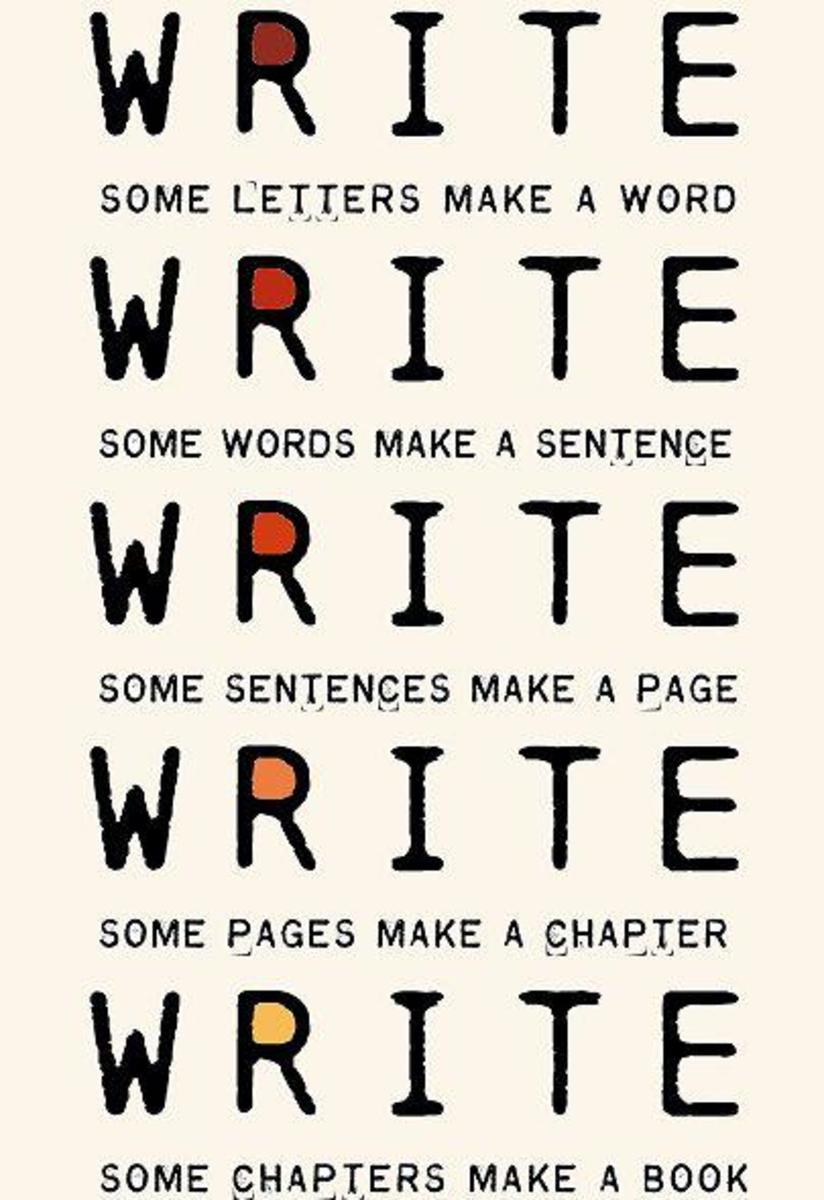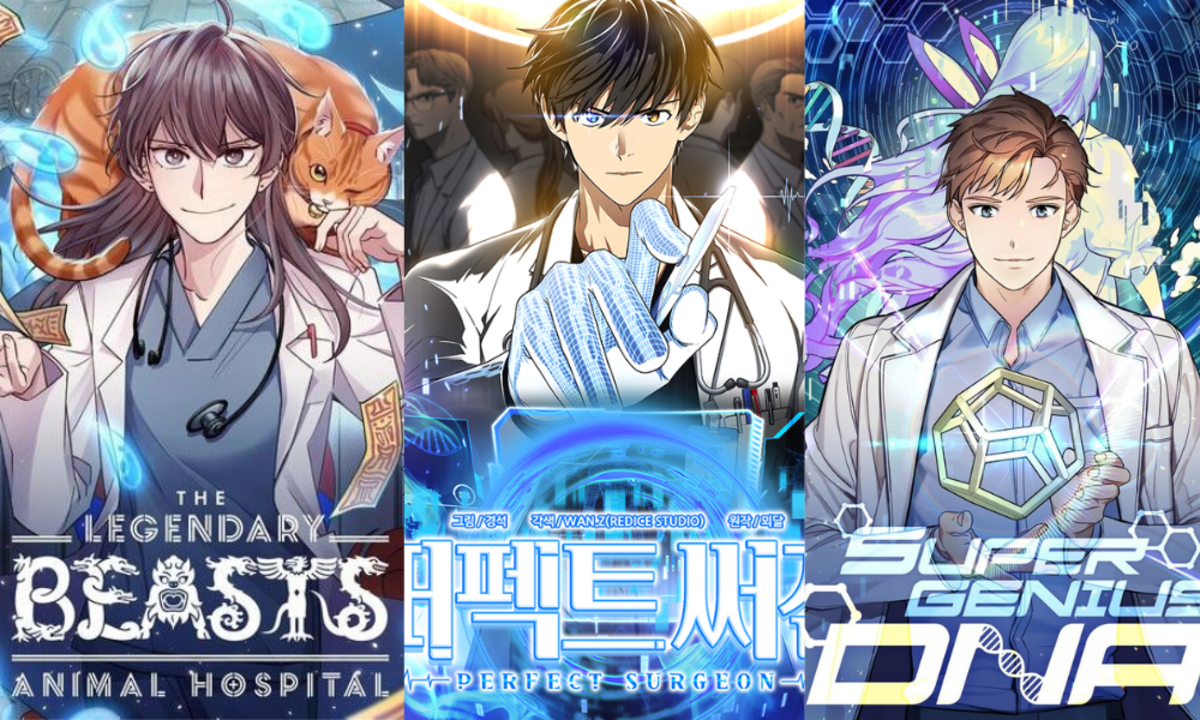How To Write a Novel: The First Draft
Get Ready to Write!
Are you ready to start writing your novel?
Have you got:
- A starting point;
- An ending;
- Points of conflict;
- Ways of resolving these conflicts;
- A definite purpose for all characters?
If you wish to write a novel but haven't a clue what it's going to be about, who is going to be in it or how it might end, then you are likely to spend many hours staring at a blank screen waiting for inspiration which might never come.
If you only have a vague idea for the novel, then you could save yourself a lot of frustration by letting that idea develop more fully before trying to write anything.
For example, say you wished to write a ghost story. You could develop this idea by thinking about:
- Location;
- Who is being haunted;
- Who or what is doing the haunting;
- Why is the haunting happening;
- How does the ghost manifest;
- Reactions to the haunting;
- Failed attempts as resolution;
- How the story ends.
Let your imagination play around with the idea until a rough plot outline takes shape. Some ideas will fade away and this is ok, as your stronger ideas will stay.
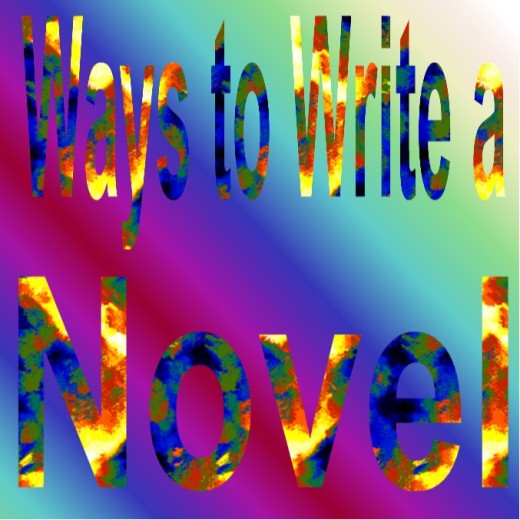
Time to Write
Most writers develop a routine, allocating a period of each day which is solely used for writing. This might mean setting the alarm an hour earlier each morning so you can write before heading out to work, or it might mean switching off the TV for a few hours each evening, or reducing the amount of time you spend online with social networking.
Experiment to see what works for you and for those around you. Explain to other members of your household that you need to be left alone while you write. Stick to your new routine, even when - especially when - you don't feel like it.
Some writers like to carry a notebook so ideas don't slip away. In theory, over time these notebooks can become a good source of ideas. I abandoned notebook-keeping when I ran out of storage room for notebooks. Besides, I don't forget really good ideas anyway.
Breaking Down the Word Count
Novels tend to be, on average, between 80,000 and 100,000 words long. This varies depending on the genre of novel, but for argument's sake let's use the 100,000 word count.
If you wrote every day for one year, and produced only 274 words per day, you'd have the first draft of your novel completed by the end of that year.
If you wrote 500 words for five days a week, then each week you would have produced 2,500 words which adds up to 10,000 per month. You'd then have your 100,000 first draft completed in ten months.
If you break the task down in this way, you can quickly see that hitting that 100,000 word count is within reach.
Novella, Novelette or Novel?
The difference between a novella, a novelette and a novel is the quantity of words. A novelette has between 7,500 and 17, 500 words. Anything less than 7,500 is classed as a short story. A novella has between 17,500 and 40,000 words. A novel has more than 40,000.
Three Ways to Write!
Great Gifts for Writers at Spooky Cute Designs!
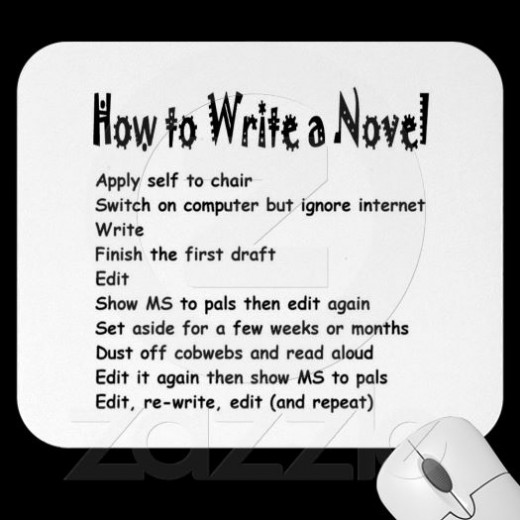
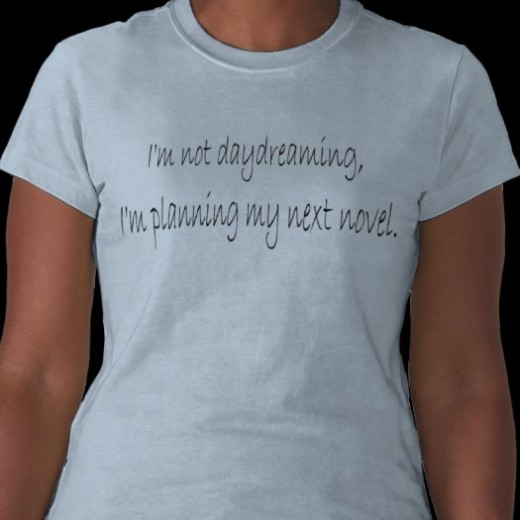
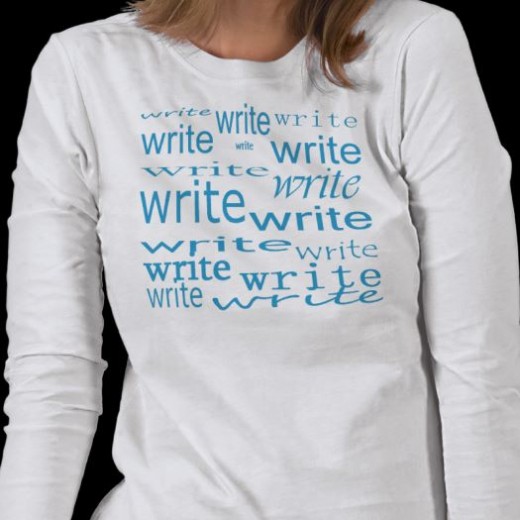
It could be argued that writing requires only one method - sit down and get on with it.
There is no right and wrong way - only the way which works for you, and this is something every writer has to discover for themselves through experimentation over time.
Aside from that, there are three ways of approaching the task of novel writing. These are the Intuitive, the Methodical, and the Somewhere-in-Between methods.
The Intuitive Writing Method
The intuitive writer has only a vague idea what they're going to write about. They just start writing and keep writing and open themselves to whatever pours through. They give little or no thought to plot, structure or characters - consciously, at least - and have no idea which direction their writing will go in. Some claim to enter a dream-like state almost like a trance, and that they are merely the vehicle for their stories.
This may sound chaotic and random, but this method works perfectly well for some people. For others, this can become a trap. Much time and effort can be wasted waiting for an idea worth pursuing. This may be fine for hobbyist writers, but for professionals it's impractical. When a formal publishing deadline has been set, then the work needs to proceed at a calculated pace.
The Methodical Writing Method
Methodical writers plan absolutely everything. Each chapter is outlined. Their detailed notes feature pieces of dialogue and description which they intend to use in the manuscript. Their character charts are filled out to the tiniest detail. Every event in every chapter is planned fully in advance of writing even the first sentence of chapter one.
Many authors use this method to great advantage, having found it saves them time in the long-run. Non-fiction writers frequently adopt this method too.
Other people find this method hinders creativity. They find this approach too rigid and dry.
The Somewhere-in-Between Writing Method
With this approach, the writer has an idea of how they want to start the story and where they want it to finish. They probably have a few scenes already half-written in their imagination, and know who the main characters are. But there is also some room for spontaneity and creative freedom to change ideas and bring in new people - or to kill a few off. It's like having half a map, with space left for improvisation and discovery.
World's Longest Book!
The Guinness Book of Records cites the world's longest novel as being nearly 1.3 million words long. This was "A la Recherche du Temps Perdu", (in English, "Remembrance of Things Past"), by Marcel Proust.
Format for Novels
There is no need to worry about format when writing a first draft. You are not going to submit a first draft to an agent or publisher, ever, so at this stage their requirements are irrelevant.
Use a font which can be read easily, such as Times New Roman or Courier New, in a reasonable size such as 12-point.
Use double-lined spacing, one-inch margins, a quarter-inch indent at the start of each paragraph, and print on one side of the paper only.
This format is similar to that required by most agents and publishers, but the main reason for using this is to ensure you have enough space on the page for corrections after you have completed the whole of the first draft.
Don't get involved with re-writing and editing until the first draft is finished. The purpose of a first draft is to simply get the story written, and if you let yourself become distracted by corrections you may find this blocks the flow of creativity.
As with all guidelines, there are exceptions to the 'rules'. A few writers feel they can't move on with the next section of their novel until the words they've just written are as perfect as it is ever possible to be. If you're new to writing, I would advise you to avoid this approach as otherwise you are likely to grow so frustrated with the project that you never finish it.
Keep a copy of your work on disc always. If you keep it only on your computer and your computer dies, your work will die with it. That's probably stating the obvious but I've lost work that way before now and it can be incredibly frustrating.
Novels by the Author of this Article!
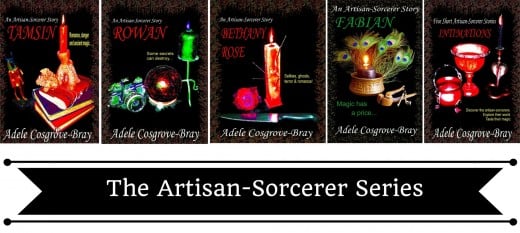
Who, What, Why, When and How?
What does a good plot need?
- Something happens or someone has an ambition;
- Changes as a result of this;
- Point(s) of conflict;
- Resolution.
How are good fictional characters made?
- Be great at something and bad at something else;
- Have a definite function within the story;
- Be defined by their actions.
These bullet points may seem simplistic, but even so they are important issues which need full consideration when planning your novel. Otherwise, you'd be writing a tale wherein nothing happens, nothing changes and everyone seems uninteresting.
Outline Your Plot
To speed up the writing process and to identify plot-holes, first write a short version which explains, without any embelishments, what is going to happen in the book. This should be about three or four pages long, and tells the whole story in brief. Don't waste time trying to make this outline perfect, as you are not going to share this with anyone - unless you want to, of course.
Identify the main theme of your story, then play around with ideas to expand this.
For example, let's say the main theme is about riding a horse from Land's End to John O'Groats in Britain. Who is the rider? Why are they doing this? How do they feel when they set out on their journey? How do people important to the rider react? What will be discovered on the journey? Who owns the horse? How will it be cared for? How does the horse respond to the journey? Where will the rider sleep, and what will they experience en route? Will there be danger? Will the rider meet someone of importance to the story? Will there be a crisis? Will the journey be completed? Can the horse make the journey? How does the rider, and other people, feel about the journey's end?
Get Writing!
When you are ready to start writing your novel, dive straight in.
To write, get writing. Keep to the daily or weekly word count you set yourself. Keep going until the project is done. Remember, writing the first draft is not about creating a work of perfection but about getting the story down.
Then set it aside for at least a whole month. Don't even look at it. Try not to even think about it. Write something else completely different, such as short stories or poetry.
Only then are you ready to re-read you rmanuscript with an eye to improving plot, character and entertainment factors.
One last comment from me: Enjoy your writing!
María del Socorro Tellado López, pen name Corin Tellado, wrote more than 5,000 titles, mostly romances. She sold more than 400-million books.
Share Your Opinion!
Did you enjoy this article about writing your first draft of a novel?
Further Reading...
- Fiction Story Generator - A Low-Tech Writer's Aid
This story generator will provide a huge quantity and variety of story ideas simply and quickly... - Character Charts - a Writer's Aid
Purposes of Character Charts: (a)helps create whole characters; (b)find data easily; (c)prevents errors. Why writers use character charts. Plus FREE chart!
© 2010 Adele Cosgrove-Bray
